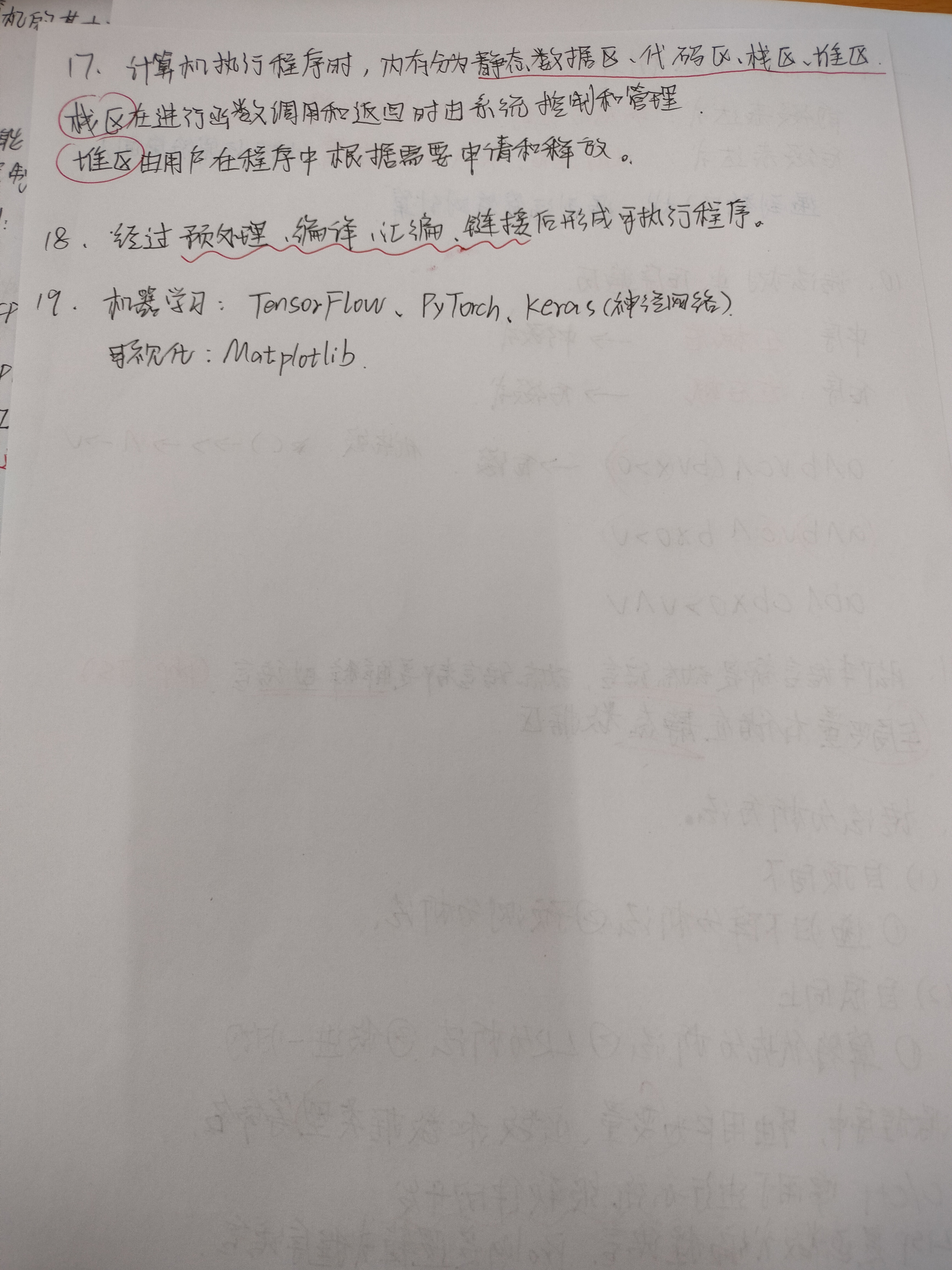题目二 建设基站
有一棵二叉树,每个节点上都住了一户居民。现在要给这棵树上的居民建设基站,每个基站只能覆盖她所在与相邻的节点,请问信号覆盖这棵树最少需要建设多少个基站
#include <bits/stdc++.h>
using namespace std;
const int N = 3010;
struct Node {
int val;
Node*left, *right;
Node (int _val) : left(nullptr), right(nullptr){
val = _val;
}
};
int num[N];
Node* root;
int tot = 0;
const int INF = 1e8;
void build() {
root = new Node(num[0]);
queue<Node*> q;
q.push(root);
int i = 1;
while (!q.empty()) {
if (i == tot) break;
auto node = q.front();
q.pop();
if (num[i] != -1) {
auto l = new Node(num[i]);
node->left = l;
q.push(l);
} else {
node->left = nullptr;
}
i++;
if (num[i] != -1) {
auto r = new Node(num[i]);
node->right = r;
q.push(r);
} else {
node->right = nullptr;
}
i++;
}
}
vector<int> dfs(Node* root) {
if (!root) return {0, 0, INF};
auto l = dfs(root->left), r = dfs(root->right);
return {
min(l[1], l[2]) + min(r[1], r[2]),
min(l[2] + min(r[1], r[2]), r[2] + min(l[1], l[2])),
min(l[0], min(l[1], l[2])) + min(r[0], min(r[1], r[2])) + 1
};
}
int main() {
string line;
getline(cin, line);
stringstream ssin(line);
string n;
int i = 0;
while (ssin >> n) {
tot++;
if (n != "N") {
num[i] = stoi(n);
} else {
num[i] = -1;
}
i++;
}
build();
auto f = dfs(root);
cout << min(f[1], f[2]) << endl;
return 0;
}
题目三 最小代价相遇的路径规划
假定有两辆车在给定一个 n x n 的非负整数矩阵地图 grid中行驶,地图左上角位置为[0, 0]。我们简化车辆行驶的方式,每辆车可以从一个坐标行驶到相邻(上下左右)的另一个坐标,并且经过的每个位置都会产生代价,包括起始位置的代价。其中 grid[i] [j] 表示通过网格位置 [i, j] 所需的代价。矩阵中,grid[i] [j] 等于 0 表示该位置为障碍物,车辆无法通过。
两辆车约定好需要在地图中快速相遇进行货物交接。两辆车相遇的定义为:两辆车最终分别停在相邻的网格位置(上下或左右相邻),并且路径可达。 两辆车相遇所需的代价定义为:两辆车到达各自相遇位置所需代价中的较大值。 注意:路径代价包含车辆的起始位置位置的代价;行驶过程中,车辆可以停在某一个网格位置上,两辆车无需同步行驶。
求两辆车可以相遇需要的最小代价,如果无法相遇则返回 -1 。
#include <bits/stdc++.h>
using namespace std;
const int N = 1010;
int g[N][N];
int n;
int ca[N][N], cb[N][N];
int res = INT_MAX;
int dx[4] = {-1, 0, 1, 0}, dy[4] = {0, 1, 0, -1};
int main() {
cin >> n;
for (int i = 0; i < n; i++)
for (int j = 0; j < n; j++)
cin >> g[i][j];
memset(ca, 0x3f, sizeof ca);
memset(cb, 0x3f, sizeof cb);
for (int i = 0; i < n; i++) {
for (int j = 0; j < n; j++) {
if (!g[i][j]) continue;
if (!i && !j) ca[i][j] = g[i][j];
else {
if (i) ca[i][j] = min(ca[i][j], ca[i-1][j] + g[i][j]);
if (j) ca[i][j] = min(ca[i][j], ca[i][j-1] + g[i][j]);
}
}
}
for (int i = n - 1; i >= 0; i--) {
for (int j = n-1; j >= 0; j--) {
if (!g[i][j]) continue;
if (i == n-1 && j == n-1) cb[i][j] = g[i][j];
else {
if (i != n-1) cb[i][j] = min(cb[i][j], cb[i+1][j] + g[i][j]);
if (j != n-1) cb[i][j] = min(cb[i][j], cb[i][j+1] + g[i][j]);
}
}
}
for (int i = 0; i < n; i++) {
for (int j = 0; j < n; j++) {
for (int t = 0; t < 4; t++) {
int x = i + dx[t], y = j + dy[t];
if (x < 0 || x >= n || y < 0 || y >= n) continue;
res = min(res, max(ca[i][j], cb[x][y]));
}
}
}
if (res >= 0x3f) cout << -1 << endl;
else cout << res << endl;
return 0;
}



















